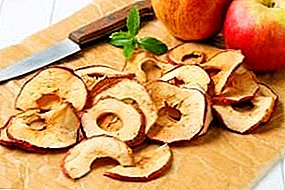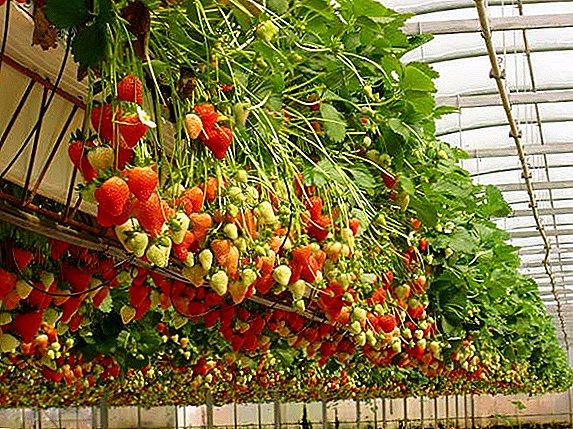 The method of growing plants through hydroponics - has been known for a long time. The first samples of hydroponics are attributed to the "Hanging Gardens" of Babylon and floating gardens, which were created during the time of the Moorish Aztec.
The method of growing plants through hydroponics - has been known for a long time. The first samples of hydroponics are attributed to the "Hanging Gardens" of Babylon and floating gardens, which were created during the time of the Moorish Aztec.
What is hydroponics?
So what is hydroponics? Hydroponics is a way to grow greens, vegetables and fruits without soil. Nutritious elements of the plant roots are not obtained from the soil, but from a rather strongly aerated medium. It can be solid (air-consuming or porous moisture-absorbing) or water. Such an environment must necessarily contribute to the respiration of the root system.
Using the hydroponic method it is possible to harvest in the driest regions. But this does not prevent it from becoming more and more popular in the CIS countries, because hydroponics makes it possible to grow crops on an industrial scale, while occupying rather small plots.
Hydroponic methods
Hydroponic methods are based on studying the root system of a plant. Dozens of years have been spent by scientists on understanding what exactly the root gets from the soil. The choice of the method of creating ideal conditions depends on the agricultural technology of the cultivated plant. For a healthy, high-quality harvest of fruits, vegetables and other plants, you need to choose the appropriate method:
Aggregoponika
 In this case, plants are grown only on solid types of substrate, which have a relatively low moisture content. The root system is located in the sand, expanded clay or similar soil substitutes. Plants take all the necessary mineral elements from the substrate solution.
In this case, plants are grown only on solid types of substrate, which have a relatively low moisture content. The root system is located in the sand, expanded clay or similar soil substitutes. Plants take all the necessary mineral elements from the substrate solution.
Hemoponica
Chemoponica or hemoculture. This method is quite close to the method of cultivation in the soil mixture. In this case, the plant is fixed in an organic substrate. Chemoponics do not need special equipment, it can be used in all types of greenhouse.
Ionitonik
Ionoponics is a new method, similar to aggregopatonics, based on ion-exchange materials. The substrates are: ion-exchange resin, polyurethane foam granule and fibrous materials. The difference from aggregopathic is that here the nutrients are in the substrate itself. This allows plants to be irrigated with pure water only.
Did you know? Ionitonum is an artificial primer.
Aeroponica
 In this embodiment, there are no solid substrates. The plant is fixed on the lid of the vessel with the nutrient solution. The root system of the plants is sprayed every 15 minutes.
In this embodiment, there are no solid substrates. The plant is fixed on the lid of the vessel with the nutrient solution. The root system of the plants is sprayed every 15 minutes.
Important! It is necessary to ensure high humidity, so that the roots are not dried.
How to transplant strawberries from the ground
Agriculture is evolving with the times and the question "How to grow strawberries in hydroponics?" long been studied. For transplanting strawberries from the soil, only young, healthy and well-growing specimens can be used. Followed by:
- Well pour water plants the day before transplantation.
- Release the roots of the plant from the ground.
- Rinse the roots of water with warm water.
- Remove rotten, damaged or long roots.
- Put the plant in a hydroponic pot.
- Pour warm water into the outer vessel without adding fertilizer.
- Cover the plant for two weeks with a film, which will prevent the evaporation of moisture.
- When the liquid is almost evaporated - you can begin feeding.
How to grow strawberries using hydroponics
 To grow strawberries at home using the hydroponic method, you need to choose the appropriate methods for the number and location of the plantings. In particular, for growing strawberries use:
To grow strawberries at home using the hydroponic method, you need to choose the appropriate methods for the number and location of the plantings. In particular, for growing strawberries use:
- The method of periodic flooding. Uses a standard installation that requires qualified configuration. This method is relevant for use in a room with a large number of plants.
Deepwater hydroponics. This method is considered unsuccessful, because the strawberry is not a moisture-loving plant.
Important! Using this method, it is possible to expose the root system to bacteria that will reduce the growth and yield of the plant.
- Nutritional System Provides for the installation of plastic boxes, in which the fluid circulates constantly. The root system is immersed in this fluid, from which it receives all the necessary substances.
Drip irrigation. Using this method, you need to plant the bushes of plants in a special substrate. The root system is provided with a special fluid using droppers, which are powered by water pumps.

Did you know? The composition of the substrate may include: peat mixture, coconut, or mineral wool.For growing strawberries at home, most often, they use the latest hydroponic method, with the help of which it is really possible to get crops in a greenhouse, a warmed room or in a special room.
Benefits of using hydroponics
Technology hydroponics greatly facilitate the process of growing plants. This became possible thanks to the automation of all stages of plant care: light and temperature regimes, mineral supplements.
Home hydroponics makes it possible to form the necessary parameters of the ionic composition in plant products. This is done by programming the mineral nutrition composition itself. Such plants grow faster, bloom faster and bear fruit. The concentration of vitamins, sugar and organic acids, in them, is much higher than in normal ones. A person can regulate the level of nitrates in plants. Crop, when hydroponically grown, is much more abundant than when the plant grows on the soil.
Disadvantages of hydroponic methods
The disadvantages of hydroponic methods are very few, but they include:
- The high cost of the system. At first glance it may seem that buying a ready product is much cheaper.
- The duration and complexity of the process.












